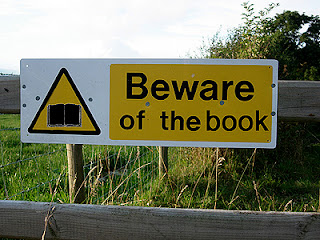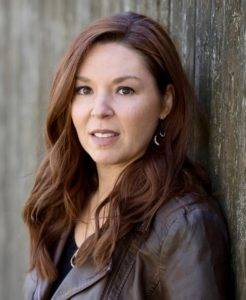Feels like every time you turn around someone is trying to censor YA novels. If they’re not banning them from school libraries, they’re protesting them for being too edgy, or now they’re trying to slap them with arbitrary ratings.
US News and World Report recently ran article detailing a study that looked at a couple dozen YA novels and determined that a ratings system is needed.
Now, at first thought, you may think, how bad could a ratings system be? Maybe a little tag on the back cover stating that a book has “profanity” or “violence” or “drugs” could be useful. And I can understand why some parents might think that; after all, movies and TV shows are rated.
However, think long and hard about who’s doing the ratings.
Wait. You can’t think hard about them because you don’t know who these people are, which means you don’t know what words they consider “profane” or what acts they consider “violence.”
For example, the study in question mentions profanity as including the numerous f-bombs dropped in Gossip Girl. Fine, that’s a no brainer. F-word = curse word. But then they also include, “Diary of a Wimpy Kid’soccasional reference of bodily functions.” Seriously. So when doing this study, educated researchers decided to include words like fart, poop, burb, pee, etc.? To them, those are profane words. Well, what about penis? Is that a bad word? How about stupid, or boobs, or ugly, or homosexual?
Who gets to make these decisions?
This also applies to violence, which could include anything from machine gun fight to a slap in the cafeteria.
The point is, these decisions are arbitrary, they’re subjective, and they reflect the views of a morality board (and think of the type of people who would want to work on a morality board) without including any context. What if the machine gun fight depicted has to do with Pearl Harbor, does that change your view of the violence in the novel? Will it change the morality board’s?
The biggest danger, though, is not just a ratings system that would usurp the entire back cover just to include all the details necessary in making it in any way useful, it’s the idea that in order to get a “better” rating a writer might be asked to censor their work.
Imagine an author writing a book for middle graders who gets slapped with an R-rating because their adolescent character is comically obsessed with his penis. That writer might be asked to water down their work in order to get a PG-13 rating that would lead to more book sales. And does that really mean that their initial vision isn’t funny or appropriate for 13 year olds? Because most 13-year-old boys have quite a healthy fascination with what’s going on down below, but a parent who sees a big red “R” on the cover isn’t going to understand how it got there. They could be misled to believe that the book must include a crack-deal during a gunfight where the assailants are having graphic sex while simultaneously screaming the F-word. Because the ratings for those two books could be the same if the penis is called a “cock” or a “prick” or anything else the board considers inappropriate.
Ultimately, a ratings system would force authors to bend to the will of mysterious censors in order to make their publishers happy, earn money, and keep writing. I know that’s not how I want to write. And I doubt that’s what teens want to read.



